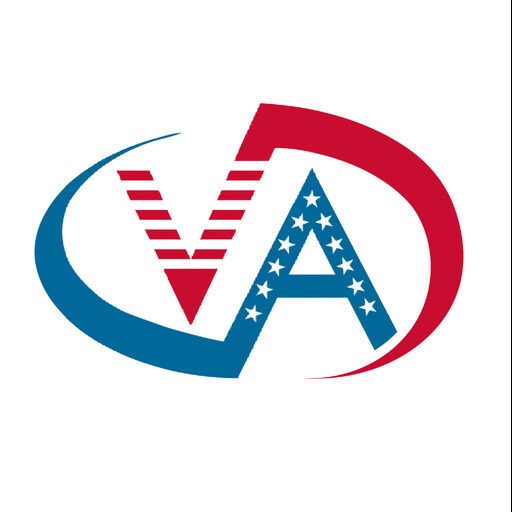Veterans and their families have access to numerous benefits, including VA business loans, which provide critical funding to support Veteran entrepreneurship. Although the U.S. Department of Veterans Affairs (VA) doesn’t directly issue these loans, various programs through the U.S.
Small Business Administration (SBA) and private lenders offer tailored financing solutions for Veteran-owned businesses. This guide will explore VA business loans, available options, eligibility requirements, the application process, and additional resources.
What Are VA Business Loans?
VA business loans are financial tools designed to help Veterans start, expand, or manage their businesses.
These loans come with favorable terms compared to traditional loans, making them more accessible for Veterans seeking capital. Key features include:
- Lower Interest Rates: VA-backed loans typically offer lower interest rates, reducing the overall financial burden.
- Flexible Repayment Terms: Many VA business loans provide extended repayment options, aligning monthly payments with cash flow.
- Support Services: Many loan providers offer consulting services, helping Veterans with business plans and other business-related tasks.
- Risk Mitigation: The VA’s backing reassures lenders, making them more willing to issue loans to Veterans with less traditional credit histories.
Eligibility for VA Business Loans
Eligibility for VA business loans varies by program, but common standards apply across most lending options. Here’s a detailed breakdown:
- Veteran Status: Applicants must verify their status as qualified Veterans with documentation, such as a DD Form 214. Other forms of verification may also be acceptable depending on the lender and program.
- Business Requirements: Eligible businesses are typically for-profit and meet SBA criteria. Non-profit organizations and certain sectors, like gambling, are generally ineligible.
- Ownership Control: The business must be at least 51% owned by one or more Veterans or service-disabled Veterans. This ownership requirement ensures that the Veteran is the primary decision-maker.
- Creditworthiness: A credit score of 680 or higher is generally preferred, though some programs may accept lower scores. Veterans with lower credit scores should consider improving their credit before applying.
- Experience and Qualifications: Relevant business experience can positively impact a lender’s assessment. Veterans with prior experience in their business industry will typically have an advantage when seeking funding.
Types of VA Business Loans
Numerous loan options are available for Veterans, each tailored to specific needs. Below are the primary types of VA business loans:
SBA Express Loan Program
The SBA Express Loan Program is designed to provide Veteran-owned businesses with quick access to funding.
- Overview: Provides loans up to $500,000 with a faster approval process, often within 36 hours.
- Terms: Repayment terms can vary from 7 to 25 years, depending on the loan’s purpose. Interest rates are competitive and capped by the SBA.
- Use of Funds: Funds can be used for a variety of purposes, including working capital, equipment purchase, or business expansion.
- Link: SBA Express Loan
| Feature | SBA Express Loan |
|---|---|
| Maximum Loan Amount | $500,000 |
| Approval Time | Within 36 hours |
| Repayment Term | 7-25 years |
| Use of Funds | Working capital, equipment |
SBA 7(a) Loan
The SBA 7(a) Loan Program is one of the most flexible and widely used SBA loan programs, suitable for a range of business needs.
- Overview: This loan is ideal for businesses that require substantial funding, offering amounts up to $5 million. It’s often used for working capital, equipment purchases, and commercial real estate.
- Terms: The repayment term can extend up to 25 years for real estate and up to 10 years for equipment or working capital.
- Use of Funds: The loan can be used for almost any business purpose, including refinancing debt.
- Link: SBA 7(a) Loan Program
| Feature | SBA 7(a) Loan |
|---|---|
| Maximum Loan Amount | $5 million |
| Repayment Term | Up to 25 years |
| Use of Funds | Real estate, equipment, working capital, refinancing |
SBA 504 Loan
The SBA 504 Loan Program is particularly well-suited for purchasing major fixed assets like real estate or large equipment.
- Overview: This program is structured with a dual-layer loan model, typically involving a 50% loan from a bank and 40% from a Certified Development Company (CDC).
- Terms: Repayment terms can extend to 10, 20, or 25 years, depending on the asset being financed.
- Use of Funds: Primarily for purchasing fixed assets, such as real estate or large machinery.
- Link: SBA 504 Loan Program
| Feature | SBA 504 Loan |
|---|---|
| Maximum Loan Amount | Based on project costs |
| Loan Structure | 50% bank, 40% CDC, 10% borrower |
| Repayment Term | 10-25 years |
| Use of Funds | Fixed assets like real estate or equipment |
Veteran Readiness and Employment (VR&E) Program
While not a traditional loan, the Veteran Readiness and Employment (VR&E) Program offers valuable support for Veterans with service-connected disabilities who are interested in starting a business.
- Overview: Focuses on providing job training and educational resources rather than direct loans, helping Veterans develop the skills necessary for entrepreneurship.
- Benefits: Includes financial assistance for business training, mentorship, and job placement services.
- Link: VA VR&E Program
Private Lenders and Alternative Financing
Veterans may also explore options through private lenders and alternative financing methods:
- Crowdfunding: Platforms like Kickstarter, Indiegogo, and GoFundMe allow Veterans to raise capital from the public.
- Grants: Organizations like the StreetShares Foundation offer grants specifically for Veteran business owners. These grants do not require repayment, making them an attractive option for financing.
- Local Banks/Credit Unions: Some local financial institutions offer specialized loan products tailored to Veterans.
The Application Process for VA Business Loans
Navigating the application process successfully requires careful preparation and attention to detail. Here’s how Veteran business owners should approach this step-by-step process:
Step 1: Prepare Your Business Plan
A well-crafted business plan is often the cornerstone of a successful loan application. Your plan should include:
- Executive Summary: A brief overview of your business concept, mission, and vision.
- Market Analysis: Conduct thorough research to understand your target market, industry dynamics, and competitive landscape.
- Operations Plan: Clearly outline how your business will operate daily, including supply chain management, staffing, and process flows.
- Financial Projections: Include income statements, cash flow projections, and balance sheets to demonstrate the financial viability of your business.
Step 2: Assess Your Credit Score
Before applying, obtain your personal and business credit scores. Review your credit reports for inaccuracies or areas needing improvement. Consider working with credit repair services if necessary.
Step 3: Gather Required Documentation
Prepare and organize all necessary documents that lenders usually require for processing your application:
- Personal and Business Tax Returns: These might be requested for up to three years prior.
- Business Financial Statements: Compile balance sheets, profit and loss statements, and cash flow projections.
- Legal Documentation: Include business documents such as licenses, registrations, and any partnership agreements.
- Military Documentation: Have your DD214 or equivalent form readily available to demonstrate your Veteran status.
- Personal Financial Statement: This should accurately reflect your current financial situation, including assets, liabilities, and income information.
Step 4: Research and Choose the Right Lender
Take the time to identify and evaluate potential lenders. Consider their reputation, experience with Veteran-owned businesses, customer service, and any fees or terms associated with their loans.
Step 5: Submit Your Application
Complete the application and ensure that all required documentation is in order. An incomplete application could delay processing or lead to denial.
Step 6: Review and Approval Process
Once your application is submitted, the lender will begin the review process. Be prepared for inquiries regarding your financial statements and business plan. This could include interviews or additional information requests, so remain accessible and responsive during this stage.
Step 7: Closing the Loan
Upon approval, you’ll enter the closing phase. Carefully review all loan terms, conditions, repayment schedules, and fees before signing any agreements. Understand your obligations fully to avoid any surprises later on.
Tips for Securing VA Business Loans
Below are actionable tips that Veteran business owners can leverage to enhance their chances of successfully securing a business loan:
- Optimize Your Credit Profile: Constantly monitor your credit report, maintain low credit card balances, and ensure timely payments. Establishing positive credit habits ahead of applying can be crucial.
- Build a Strong Network: Connect with fellow Veteran owners through organizations such as the Veterans Business Outreach Centers (VBOCs), which offer workshops, networking events, and mentoring to share experiences and best practices.
- Leverage Military Experience: Highlight your military service in applications and presentations. Skills such as leadership, resilience, adaptability, and organizational skills are highly valued in the business world.
- Start Small and Expand: If you’re newfrom small-scale projects and gradually increase your business’s scope as you build credit and experience. Success in initial ventures can pave the way for larger future financing.
- Consult Expert Advisors: Engage with former business owners or professional business mentors who can provide guidance, constructive feedback, and encouragement as you prepare your application.
Additional Resources for Veteran Entrepreneurs
Accessing available resources can significantly improve your chances of success. Here are more options for support and assistance in your entrepreneurial journey:
- SCORE: A nonprofit organization providing free business mentoring and workshops focused on Veterans, with resources tailored to help Veterans thrive. More information can be found on the SCORE website.
- Small Business Development Centers (SBDCs): Offer comprehensive services in business advice and assistance. Whether you need help with technical business planning or financial analysis, SBDCs have specialists ready to assist you. Visit the SBDC website for resources.
- Institute for Veterans and Military Families (IVMF): This institute offers a variety of resources, including training programs, mentorship opportunities, and networking events specifically designed for Veteran business owners. More details can be found at the IVMF website.
- U.S. Chamber of Commerce’s Hiring Our Heroes: A vital initiative providing resources and programs that assist Veterans as they transition into civilian careers, including business ownership. Visit the Hiring Our Heroes website for more information.
- Veteran Business Owners Association: A network dedicated to empowering Veterans through resources, mentorship, and advocacy. More info can be found at the VBOA website.
- Veteran Entrepreneur Portal: The VA’s Veteran Entrepreneur Portal (VEP) provides access to various resources to assist Veterans in starting or growing a business. Check out the Veteran Entrepreneur Portal for more information.
Conclusion
VA business loans offer invaluable opportunities for Veterans to secure the funding required to transform their entrepreneurial aspirations into realities. By understanding the different types of loans available, the eligibility criteria, and navigating the application process, Veterans can significantly increase their chances of obtaining financial support.
Incorporating meticulous planning, thorough research, and the diverse range of resources available can help Veteran business owners leverage their unique experiences, skills, and commitment to success in the business world. The road to entrepreneurship comes with its share of challenges but also holds the promise of independence, financial security, and community impact.

The VA Loan Network Editorial Team is comprised of dedicated mortgage specialists and financial writers committed to providing veterans and service members with accurate, up-to-date information on VA loan benefits, eligibility, and the home-buying process.







